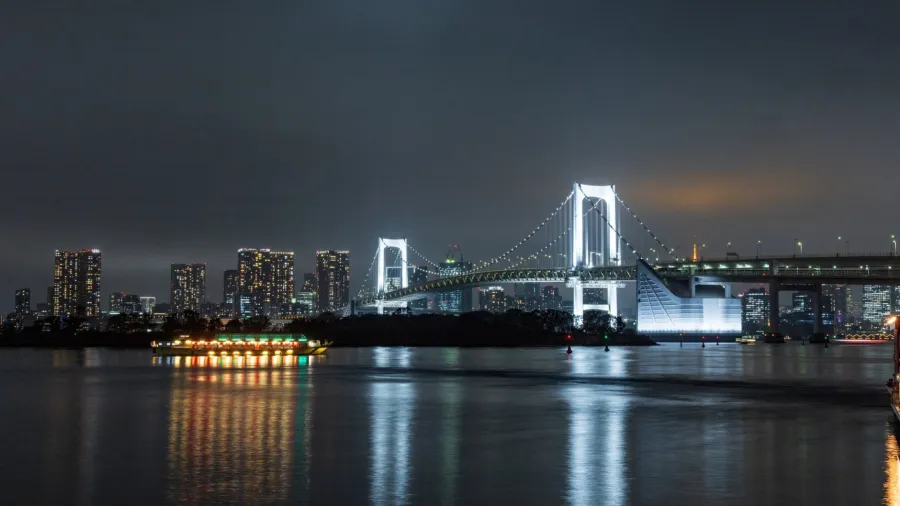
How lucrative are Japan’s ultra luxury residences as an investment?
This segment presents a wealth of advantages in estate planning for UHNWIs.
Beyond their axiomatic purpose as a place to live, Savills noted in a report that ultra-luxury residences in Tokyo are also viewed as an investment opportunity.
Japan’s economic stability, high levels of public safety, and unique cultural appeal serve as attractive points to UHNWIs. Over the past decade, a plethora of landmark developments across different parts of Tokyo have advanced the city landscape.
Here’s more from Savills:
Furthermore, while many advanced economies have seen political imbalances rife with directional changes, Japan has overall been stable in comparison, even with the ruling LDP losing its major coalition in the 2024 general election, showing the inertia the country has against political uncertainty. Japan’s real estate market is also characterised by low volatility, as observed with its comparatively strong performance in the office and retail market even during the pandemic, suggesting that it could serve as a strong hedge against inflation and market downturns.
Family offices appear to have become notably more prevalent in Japan over the past few years, as wealthy business owners and their families look for a comprehensive solution for issues ranging from protecting their assets from inflation to reducing tax liabilities. According to Preqin, the number of family offices globally has tripled between 2019 and 2024, and around 15% of them are now based in Asia, with Japan likely contributing considerably to this increment.
For UHNWIs in Japan, ultra-luxury residences present a wealth of advantages in estate planning, especially due to the inheritance tax benefits that they provide. The prime locations that these residences are in, on top of the high demand for such residences in the market relative to the scarce supply, also make them an inflation hedge. Overall, ultra-luxury residences are a unique asset class that provide unique investment opportunities particularly to UHNWIs.
Transactions in the ultra-luxury residence market are highly secretive in nature, due to the high profiles of many clients, and concrete information is generally limited to transacting parties and their agents, if any. Nonetheless, there are many indicators that point toward a growing number of transactions in the sector, as well as rapidly rising prices.
For instance, according to data from REINS, it can be observed that the number of residential transactions over JPY500 million in 2024 alone was equivalent to that of the past decade combined. Furthermore, a look at classic luxury properties in Tokyo including Toranomon Towers Residence and Roppongi Hills Residences have seen units of similar size double or even triple in price over the past decade.
At the same time, while the prices of such ultra-luxury residences may appear exorbitant at first glance, they may not actually be excessively expensive, especially
when considering the price of prime assets that are sought after globally in this era of global asset inflation. For instance, the price of gold has increased by two to three times in the past five years.
According to Tanaka Kikinzoku, a major gold dealer, the average price of gold in January 2020 was US$1,560 per troy ounce or JPY5,524 per gram, while as of March 2025, it was US$2,983 or JPY14,298, respectively. The price increments of ultraluxury residences over the same period look much more modest in gold standard. Indeed, the high level of uncertainty and enormous inflation over the last few years has made assets with intrinsic and eternal value such as gold and prime real estate shine more than ever.
Since inflationary environments and loose monetary policies across the globe have significantly devalued currencies, these residences may only be correctly priced based on the real value at the time. Indeed, enormous quantitative easing, the global scale of geopolitical uncertainties, the high debt levels of most major economies, and political instability have narrowed selections for UHNWIs to store wealth.
As such, some financially savvy ones have logically turned to prime assets such as gold and prime real estate, which appears to have played a significant part in the strong price increments observed in 2024; the price of ultra-luxury residences in Japan has been rapidly catching up with global peers as well as gold.
Overall, prices of ultra-luxury residences in the market have continued increasing and should continue doing so. The high land prices and construction costs also support this momentum. They are hence an attractive avenue for investments by UHNWIs and should continue growing in popularity.



















 Advertise
Advertise







